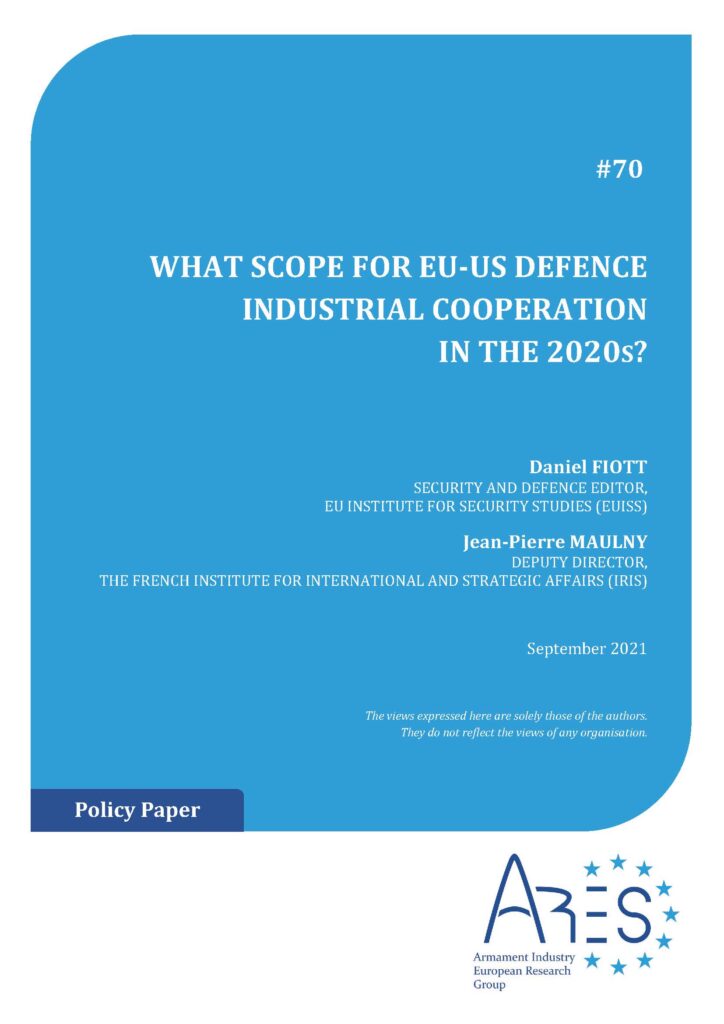Notes / ARES Group - The Armament Industry European Research Group
2 septembre 2021
What Scope for EU-US Defence Industrial Cooperation in the 2020s?

The election of Joseph Biden as President of the United States has led to talk of a reset in the transatlantic relationship. This is the dawn of a new era where the US are more involved in NATO, the Europeans are more involved in their security with projects such as PeSCo or the European Defence Fund which aim to develop their military capacity in a collective manner. At the same time, the European Union is starting to show signs of openness such as allowing third countries to join PeSCo, or the perspective of an agreement between the European Defence Agency and the US.
The question was thus to figure how the US and the EU countries could improve their defence cooperation in a climate favourable to transatlantic rapprochement.
This policy paper will first make an assessment of the transatlantic cooperation since the early 1960s. From the F-16 to the F-35, including the MLRS or the MIDS-LVT, these projects teach us valuable lessons, especially as the regulatory and economic political frameworks in which they took place have barely changed since the early 60’s. Technology however made a leap forward. It has become an integration factor, because of digitalisation, but an increased integration of arms systems can be restrained by an inappropriate regulatory framework.
At this level, several factors appear which interfere with the cooperation between the US and the EU: no reciprocity in the opening of the American market and of the European markets, the fragmentation of the European DTIB and of the European markets whereas the American market is unified, the American legislation on export control based on the principle of the extraterritoriality of the American law which prevents any level playing field for technology transfer and arms export.
Efforts will have to be made to lift those barriers so as to favour a renewed transatlantic cooperation wanted by everyone on both sides of the Atlantic, but it will also be important to consider the lessons learned from the past telling us which projects can be set in a transatlantic framework as well as those that should be avoided because of the lack of interest towards them from both sides…


